
SABCS 2024: Using Tumor Immune Profiles to Guide Neoadjuvant Therapy in Young Breast Cancer Patients
Assessing pre-treatment TIL levels in young breast cancer patients could help predict response to neoadjuvant chemotherapy.

Assessing pre-treatment TIL levels in young breast cancer patients could help predict response to neoadjuvant chemotherapy.

Komal Jhaveri MD, FACP, shares that the combination of imlunestrant plus abemaciclib further improved progression-free survival compared to imlunestrant alone.

PLT012 demonstrates its potential against multiple tumors with unmet medical needs.

Dose rounding within an acceptable range can provide cost savings and minimize waste, but requires careful interprofessional collaboration and patient education.

Virginia Kaklamani, MD, DSc, shares the role of ESR1 mutation testing and combination strategies to optimize endocrine therapy in patients with metastatic HR+/HER2- breast cancer.

This builds off prior data that showed safety and efficacy of CD19 and CD22 chimeric antigen receptor (CAR)-T cell therapy in children with relapsed or refractory B-lineage acute lymphoblastic leukemia (B-ALL).
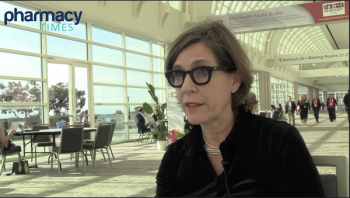
Sonja Zweegman, MD, PhD, explains the improvements in minimum residual disease negativity found after treatment with daratumumab and the VRd regimen in patients with newly-diagnosed multiple myeloma who are transplant-ineligible.

Luca Bertamini, MD highlights the potential clinical implications of using circulating tumor cells as a biomarker in patients with newly-diagnosed multiple myeloma.

The phase 3 CEPHEUS trial demonstrated that adding daratumumab (DARA) to the VRd regimen significantly improves minimal residual disease negativity, progression-free survival, and overall response in transplant-ineligible or transplant deferred patients with newly diagnosed multiple myeloma, establishing a new standard of care.

The GMMG-HD7 trial evaluated the addition of isatuximab to standard induction therapy in patients with newly diagnosed multiple myeloma who are eligible for autologous stem cell transplantation, demonstrating significantly higher rates of minimal residual disease negativity and improved progression-free survival (PFS).
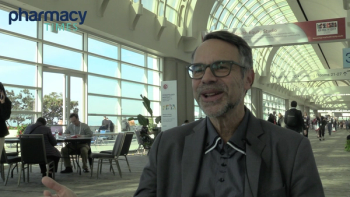
Ira Zackon, MD explains his analysis of bispecific antibody utilizaton for relapsed or refractory multiple myeloma in community oncology centers.
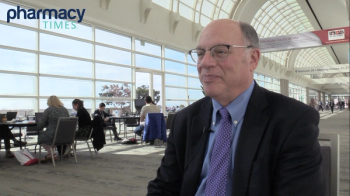
Robert Rifkin, MD, FACP, discusses multiple abstracts featuring drugs demonstrating efficacy in patients with relapsed/refractory multiple myeloma.

Shirley D'Sa, MD, highlights the long-term efficacy and tolerability of zanubrutinib in patients with Waldenström macroglobulinemia, as seen in the long-term extension of ASPEN.

The phase 3 AMPLIFY trial demonstrates that fixed-duration regimens of acalabrutinib and venetoclax, with or without obinutuzumab, significantly improve progression-free survival and deliver manageable safety profiles compared to chemoimmunotherapy in treatment-naive chronic lymphocytic leukemia (CLL).

The AQUILA study demonstrates that early treatment with daratumumab significantly delays progression to symptomatic multiple myeloma, improves survival outcomes, and offers a well-tolerated alternative to traditional observation.
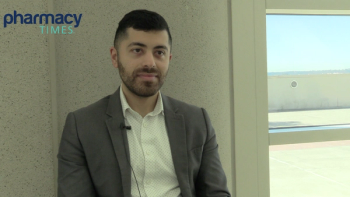
Amir Ali, PharmD, BCOP highlights the success of shorter-treatment duration venetoclax in patients with acute myeloid leukemia and efficacy of pre-transplant blinatumomab in those with acute lymphocytic leukemia.

Rakesh Popat, MBBS, PhD explains the mechanisms of action behind the improvement in minimum residual disease in patients with lenalidomide-refractory multiple myeloma with cilta-cel compared with standard of care.

Jason Wang, MD highlights the reduction in incidence and severity of adverse events such as cytokine release syndrome and ICANS following axi-cel treatment in patients with R/R LBCL.

A ketogenic diet and its key metabolite, β-hydroxybutyrate, enhance the efficacy of CAR T-cell therapy by improving metabolic fitness, cytokine production, and cellular expansion, offering a promising, safe strategy for optimizing cancer immunotherapy.

In newly diagnosed average and high standard risk B-cell acute lymphoblastic leukemia (B-ALL), blinatumomab improved disease-free survival (DFS) by approximately 97.5% and 94.1%, respectively.
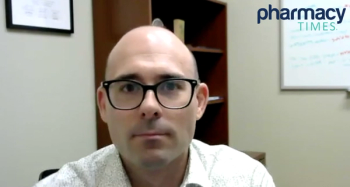
Donald Moore discusses some of the obstacles that bispecific antibodies have faced in community cancer centers, including misconceptions coupled with a prevalent toxicity profile.

Jose Tinajero discusses how certain mutations can be indicators of blinatumomab treatment failure in patients with B-cell acute lymphoblastic leukemia.

Mazyar Shadman, MD, MPH, discusses the continued efficacy of zanubrutinib in patients with chronic lymphocytic leukemia.

Durvalumab could offer further treatment for individuals with muscle-invasive bladder cancer.

Pharmacists can educate and encourage screenings for colon cancer to ensure it is discovered as early as possible.

The authors suggest that targeted interventions to mitigate financial toxicity should be implemented to better support patients.

The indication is for adults with limited-stage small cell lung cancer (LS-SCLC) whose disease has not progressed after platinum-based chemotherapy and radiation therapy.

Sacituzumab tirumotecan (sac-TMT; Kelun Pharmaceutical, Merck) is currently being studied to treat non-small cell lung cancer (NSCLC) in the TroFuse-004 and TroFuse-009 trials.

The American Society of Hematology (ASH) Annual Meeting and Exposition will include the latest news and clinical trial updates in the hematology field.

Clinicians' enthusiasm for cell and gene therapies is tempered by practical concerns.